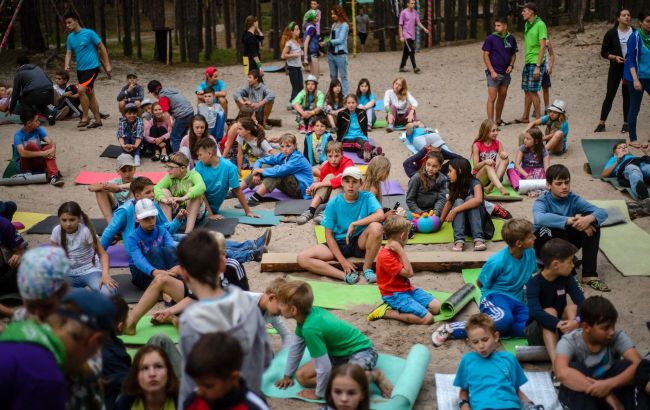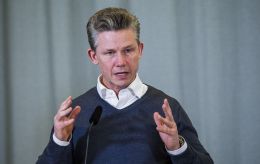Russian propaganda reaches children via sports in Berdiansk and Melitopol
 In Berdiansk and Melitopol, children are being exposed to Russian propaganda through sports (Illustrative photo: Getty Images)
In Berdiansk and Melitopol, children are being exposed to Russian propaganda through sports (Illustrative photo: Getty Images)
In temporarily occupied territories of Ukraine, the use of sports to impose political ideology on children is intensifying. Clubs and sections are being turned into platforms for spreading propaganda, and sporting events increasingly carry a pronounced ideological undertone, according to the Center for Countering Disinformation.
The Center for Countering Disinformation reported that in several cities of the Zaporizhzhia region under occupation, Russians have stepped up attempts to turn sports into a tool of pressure.
According to the resistance movement Yellow Ribbon, in Enerhodar, Berdiansk, and Melitopol, local coaches are being forced to engage in so-called education of Russian patriots.
“Representatives of the occupation administrations even attend swimming and badminton lessons, demanding that coaches hold ‘conversations’ with children and embed political slogans into training sessions,” the Center for Countering Disinformation noted.
Propaganda through sports coverage
At the same time, the number of sports-related publications on media platforms created by the occupiers in the Zaporizhzhia region has increased. These include stories highlighting the ‘achievements’ of young athletes and coverage of competitions where sports are used as a means of ideological messaging.
For instance, at one school in Berdyansk, a volleyball tournament titled “I Remember! I’m Proud!” was organized to mark the 80th anniversary of the “Great Victory.” Such events are presented as part of patriotic education.
Demonstrative attention to youth
Occupation officials from the so-called Ministry of Sports actively visit sports schools, attempting to create the appearance of caring for young people. In reality, however, these visits are accompanied by increased control over the sports sector and the promotion of propaganda narratives.
“This indicates that Russia is deliberately using sports in the occupied territories as a tool for ideological control and to impose Russian propaganda on children,” emphasized the Center for Countering Disinformation.
A messenger called Zosima has launched in Russia, presented by its creators as an Orthodox communication service. However, even in its early stages, the app has faced criticism: users report excessive collection of personal data.
In addition, in the occupied cities of Donetsk and Luhansk, representatives of the Russian Military-Historical Society presented history textbooks for students in grades 5–7. These materials are aimed at shaping a distorted perception of the region’s past and of Ukraine among schoolchildren.

